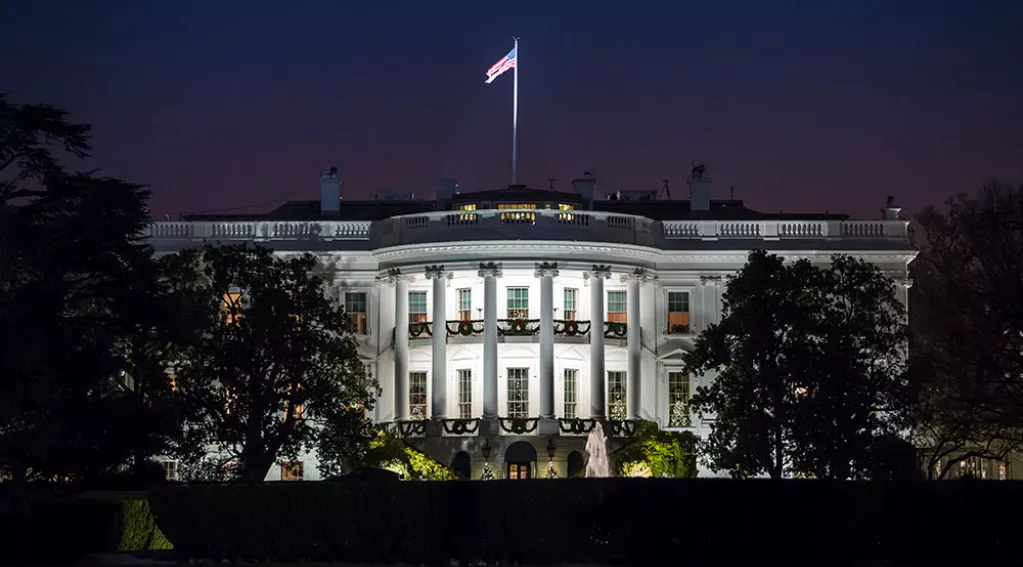What a Glimpse of Biden’s Cabinet Tells Us About His Immigration Policy

Former Vice President Joe Biden said if elected, his first priority would be dismantling what President Trump had achieved in the immigration arena. After that he would move on to drastically increase the number of immigrants who enter the U.S. through refugee, asylum and foreign worker programs. With little to no discussion of immigration during the campaign, voters know little more about Biden’s views on immigration than they did six months ago. With the announcement of some key administration nominations, the former vice president is providing some insight into which direction he intends to take U.S. immigration policy.
The initial batch of appointments reflects not only the Biden campaign’s stated commitment to “diversity” but Biden’s reliance on established relationships, including several whom he has known since his days on the Senate Foreign Relations Committee. Is the Biden administration going to be a B-grade remake of the broken policies of the Obama administration? Not likely given the leftward lurch Biden and his party have taken on the immigration issue in particular.
In his naming his choices to lead the Department ofHomeland Security (DHS) and the State Department, Biden has established a tonethat is distinctly anti-Trump and pro-mass immigration. In the pick of AlejandroMayorkas to head DHS, Biden found someone who touched all bases. A Jewish Cubanimmigrant with prior service at not only the DHS but as head of U.S.Citizenship and Immigration Services (USCIS), Mayorkas is a minority, loyal,experienced and a known commodity to the activists clamoring for a re-write ofthe last four years of progress.
Most recently a partner at the law firm of Wilmer/Hale, Mayorkas began his career as lawyer and prosecutor in California before he caught the eye of California Sen. Dianne Feinstein. She would recommend him to then-President Bill Clinton to fill a vacant U.S. attorney opening. Before leaving to return to private practice, Mayorkas was caught in a controversy surrounding his role in trying to secure a pardon for Carlos Vignali, a convicted drug dealer. Mayorkas conceded he failed to do “due diligence” with regard to becoming familiar with Vignali’s less-than-clean background.
He would go on to help on the Obama transition team before landing a prime spot as head of USCIS. It was there that helped facilitate the implementation of DACA. As the leader at DHS, Mayorkas is certain to support Biden’s push to broaden the DACA pool into the millions of illegal immigrants.
In an interview on PBS in 2017, Mayorkas was asked whether his preferred legislative solution would be essentially a codifying of DACA. He said it would be a “start,” but that he “would hope that it would be even more expansive than that.” He went on to say when considering who should get amnesty that it would be determined by their age when they came to the U.S., not their present age. So, a 56-year old who came to the country when they were 2 would qualify for amnesty under Mayorkas vision.
However, there is also a positive side of the ledger, asMayorkas was a proponent of E-Verify, which is critically important to protectAmerican workers and which he said was “a tool to ensure a legal workforce. Itassists employers in abiding by the law and it also protects theworkforce.”
In remarks made in September 2009 when the program was set to expire, then USCIS head Mayorkas warned, “If E-Verify is not renewed, in my opinion we will need a different vehicle to accomplish those very fundamental objectives.”
According to Nextgov, Mayorkas was behind efforts to use biometrics to confirm the identity of workers, but did not push hard enough on either issue to gain any momentum. While she currently oversees the Biden-Harris transition for the DHS agency review team, it is uncertain whether former USCIS Chief Counsel Ur Jaddou will join the administration. Jaddou works with the pro-mass immigration group Americas Voice as Director of “DHS Watch.”
Like Mayorkas, Biden fell back on another longtime Washington insider, Antony Blinken, to serve as Secretary of State. He also named Blinken’s boss in the Obama administration, John Kerry, to assume the newly-created role of special climate envoy. Both choices signal a coming 180 degree turn on refugee policy, since Kerry has been asserting for years that climate change is creating “climate refugees.”
“The refugee program is also an important tool of American foreign policy and has enhanced our global standing and security,” wrote Blinken in a 2018 New York Times op-ed that ended by warning that “if Mr. Trump effectively shuts down the refugee program, he will be plunging the world — and Americans with it — into greater darkness.”
Blinken, who knows Biden from their shared time in thesenate, will be a willing ally of Kerry in his effort to make climate change amajor focus of the first term.
Another move was to tap Avril Haines as the first woman to serve as director of national intelligence. Another former Senate Foreign Relations Committee staffer, Haines worked in the Obama administration as Deputy National Security Advisor and at the CIA. In her role at the White House, the Wall Street Journal reports, Haines oversaw the drastic increase in refugee admissions during the Obama-Biden administration.
When considering the opening act, it is important toremember the initial round of nominations is intended to grease the skids formore controversial selections. Just how radical could the Biden administrationget?

